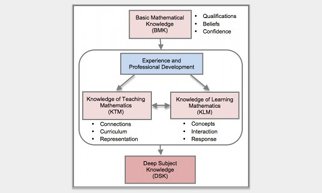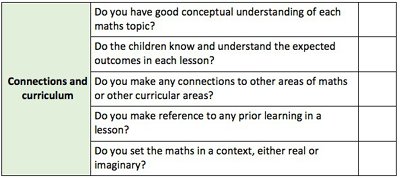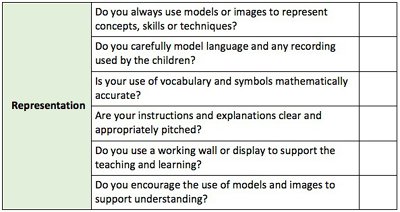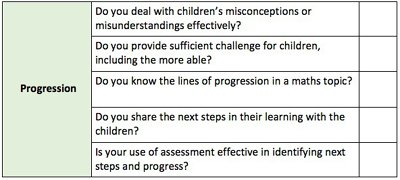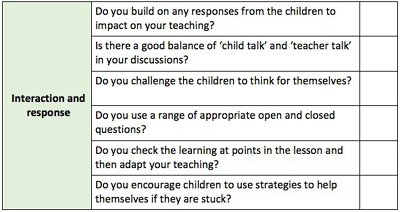I have produced a prompt sheet of questions to guide you in your self-evaluation. The prompts are in 5 areas based on my research into ‘deep subject knowledge’ with a bank of questions for each area. They are detailed below and are also available as a file with two sets of questions on an A4 sheet.
You can use this prompt sheet for simple personal reflection or for more detailed, critical self-evaluation to support you in a new role or in working towards a promotion, for example. Most importantly, use these questions yourself to identify your strengths and areas for development, before any other form of internal or external evaluation or appraisal. It makes the setting of goals for improved performance so much more effective if you have a clear idea yourself of the aspects of your deep subject knowledge that you are working on.
Evaluate yourself on each question using this scale as a guide if you wish.
5 Excellent – a real strength of my teaching
4 Very good – strong and effective in this aspect of my teaching
3 Good – I am happy with it but I could develop this further
2 Fair – I need to develop this aspect of my teaching
1 Poor – I must take immediate steps to improve this
The questions will help you identify the aspects of the pedagogical subject knowledge that you need to consider when reflecting on your teaching. Use it after a few lessons and, once you have carried out the self-evaluation, then dig deeper into the specific areas which you wish to develop. It may be the use of mathematical language, an understanding of lines of progression, the quality of the class interaction or how misconceptions or errors are dealt with. Whatever it is, having a specific target is a lot easier for a subject leader to support you with than presenting a broad ‘I want to improve my maths teaching.’
Do we need a single professional association for primary maths?
Your teaching could benefit from joining a either the ATM or MA.
Reflect on your maths teacing and look at the bigger picture
What is education all about? What are views? What changes can you make in your classroom?
Misconceptions in maths - breaking down the problems
An important aspect of teaching is understand the reasons why a child has misunderstood the maths.


